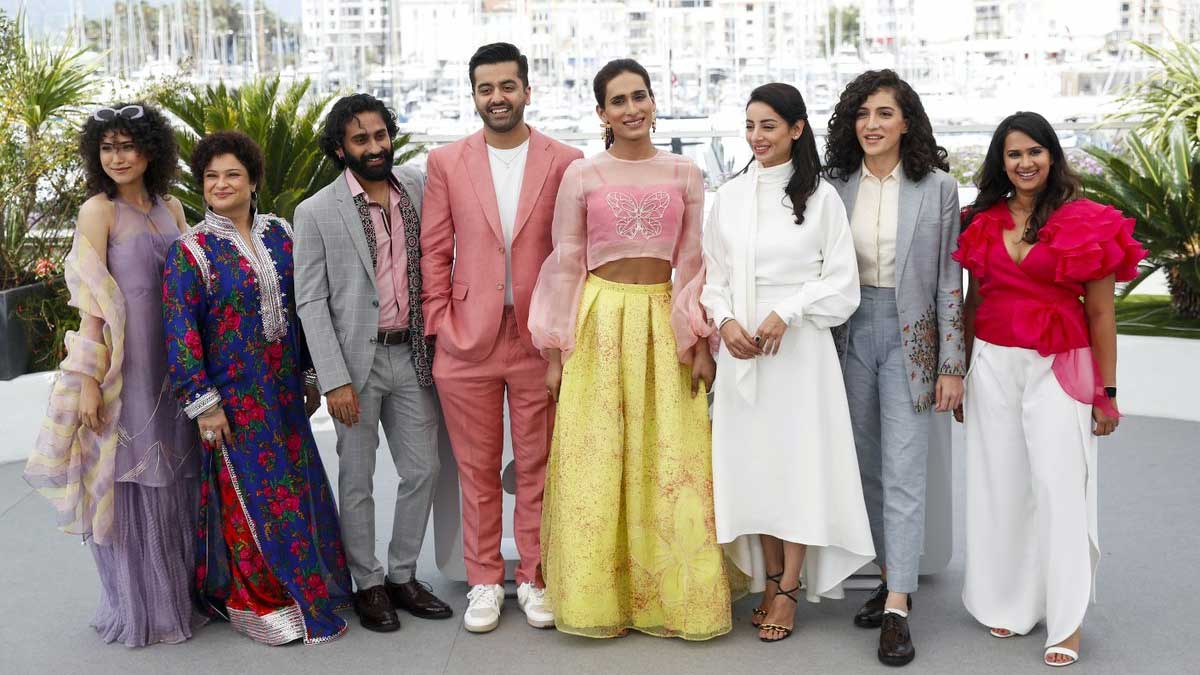Saim Sadiq’s ‘Joyland’ became the first Pakistani film to win an award at Cannes, which was also a first for the subcontinent.
‘Joyland’ was nominated in the Un Certain Regard category and won the Jury Prize as well as the Prix Queer Palm for best LGBT movie.
First-ever Pakistan film makes its place at Cannes Film Festival and a leading star of the film, Sarwat Gilani, said: “a dream has come true.” The film imposes an impression to break gender stereotypes in Pakistan and received a prolonged standing ovation.
“It felt like the hard work that people do, the struggles that we face as artists in Pakistan, they’ve all come to be worth it,” Gilani said while talking to the media man.
Sarwat Gilani, a film and TV star best famous for her recent series Churails, was a part of Joyland as Nucchi, which competes in the “Un Certain Regard” section, a competition that focused on more art-house films runs parallel to the main “Palme d’Or” prize.
Read more: Saim Sadiq’s Joyland becomes first Pakistani feature to be selected for Cannes
Talking about her role in Joyland, Gilani said Nucchi belonged to a household that was waiting for the birth of a son to continue the family line, but with the consecutive birth of her three daughters failed to please her conservative father-in-law.
She added that her brother-in-law Haider secretly fell in love with a transgender woman Biba, who was fighting for her right to work as a performer.
Moreover, Joyland also depicts the frustration of women looking for a profession, after Haider’s wife Mumtaz falls into depression after being forced to remain at home and do household chores and stop working as a make-up artist.
“It’s not just about a love story anymore. It’s about real-time issues, real-life issues that we all go through,” the TV star said, adding, “Having a woman, a trans, represent that sector of the society, I think it’s a really good step in the direction where we can say we can write progressive stories.”
Gilani remarked that she hoped Pakistani movie-goers would give Joyland as warm response as it received in Cannes.
“I’m very positive that at least our people will understand that this is also a kind of cinema that can be successful. If worldwide, then why not locally, nationally,” she said.





















